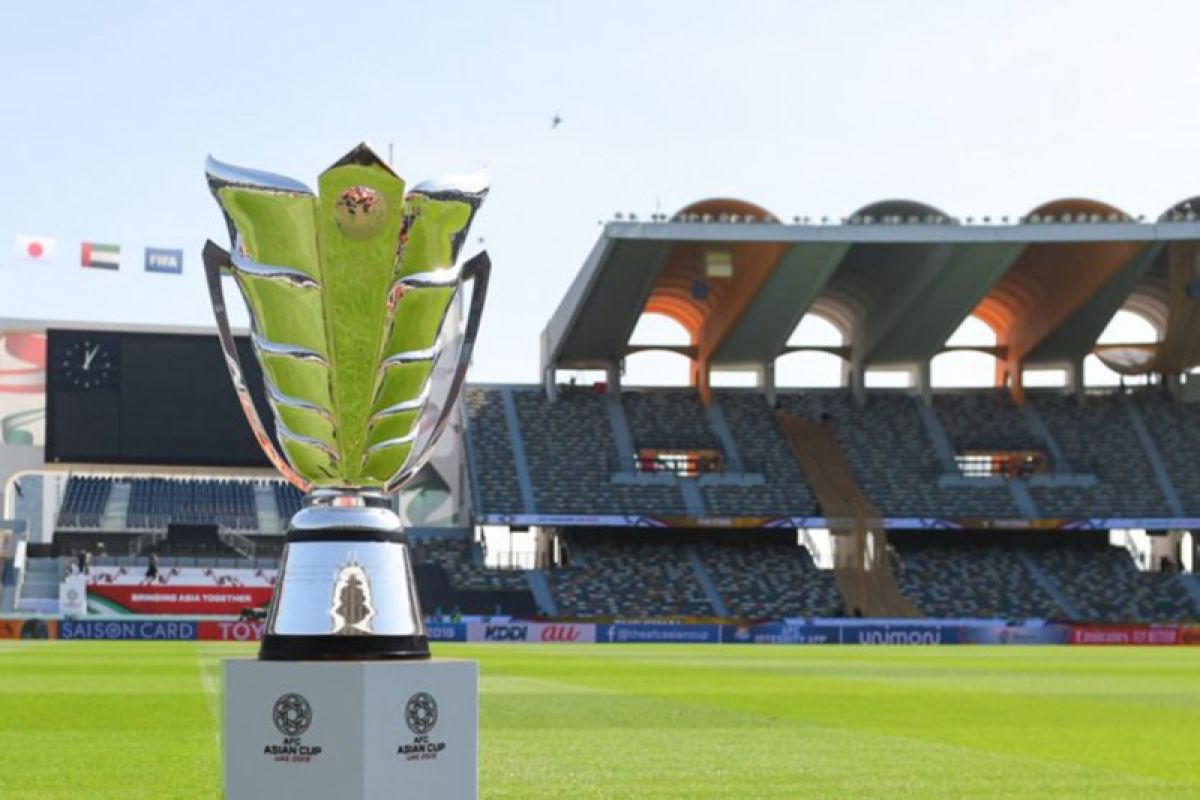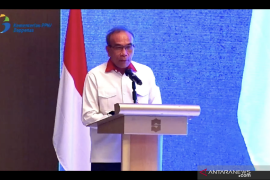At the time, Iran won the tournament after beating three-time champion Saudi Arabia by 1-0.
This year, Indonesia has gotten the opportunity to hold the tournament again, with China withdrawing as the 2023 AFC Asian Cup host on May 14 on account of the COVID-19 situation in the country.
On June 28, or two days before the deadline set by the AFC for submitting host re-bidding proposals, the Indonesian Football Association (PSSI) officially proposed to host the tournament.
The same day, the AFC postponed the submission deadline to July 15.
Then, on July 1, South Korea became the second country to officially join the bid.
It has been reported that Australia is still considering hosting the event, while Japan has admitted that it has been approached unofficially to become the host.
Qatar is also reportedly interested in replacing China as the host of the 2023 AFC Asian Cup. However, currently, the country is also competing with Saudi Arabia to win the bid for the 2027 AFC Asian Cup host.
The new host of the 2023 Asian Cup will be determined later in 2022 by the AFC Executive Committee, while all AFC members will vote for the 2027 Asian Cup host in early 2023.
At first, PSSI was hesitant to submit a bid because the 2023 AFC Asian Cup would be held right after the 2023 U-20 World Cup, which will also be hosted by Indonesia.
The U-20 World Cup will be held from May 20 to June 11, 2023, while the AFC Asian Cup is scheduled to take place from June 16 to July 16, 2023.
PSSI finally submitted the hosting proposal after President Joko Widodo (Jokowi) gave permission to the Youth and Sports Minister Zainudin Amali.
Trigger for success
All the countries that have submitted their bid or are still considering holding the 2023 AFC Asian Cup have already hosted previous editions of the tournament at least once.
However, only Indonesia has co-hosted the tournament with other countries.
Qatar has hosted the tournament twice: in 1988 and 2011.
Meanwhile, South Korea, Japan, and Australia have held the tournament in 1960, 1992, and 2015, respectively.
Interestingly, all the countries, except Indonesia, have won the Asian Cup.
Japan snatched the title four times in 1992, 2000, 2004, and 2011. South Korea won it twice in 1956 and 1960. Australia and Qatar bagged the title once in 2015 and 2019, respectively.
Considering the achievement of South Korea, Japan, and Australia, which became Asian Cup champions while hosting the tournament, holding the tournament could prove very profitable—even though Indonesia failed to advance from the group stage during the 2007 Asian Cup.
The 2007 Asian Cup was the last edition when Indonesia qualified for the tournament.
The country had also qualified for the 1996, 2000, and 2004 editions, which were held in the United Arab Emirates, Lebanon, and China, respectively.
Compared to the three earlier Asian Cup editions, the Indonesian national team's performance was better when the nation co-hosted the tournament in 2007 and the team played directly in front of supporters.
That year, Indonesia was able to play quite well against two strong Asian teams, namely Saudi Arabia and South Korea, with both only managing a narrow victory.
After defeating Bahrain 2-1 in their first Group D match, the Indonesian team scored one goal against Saudi Arabia before losing by 2-1.
In the last game, Indonesia was defeated by South Korea by only one goal.
In comparison, in 1996, despite scoring a total of four goals in the group stage, Indonesia conceded eight goals.
Indonesia drew 2-2 against Kuwait, and lost to both South Korea and the United Arab Emirates by 2-4 and 0-2, respectively.
Four years later, in Lebanon, Indonesia failed to bag a goal. It conceded seven goals instead after drawing 0-0 against Kuwait and losing 0-4 to China and 0-3 to South Korea.
Meanwhile, in 2004, at first, Indonesia snatched a surprise victory over Qatar with a score of 2-1.
However, in the succeeding matches, the national team lost 0-5 to China and 1-2 to Bahrain.
Thus, it can be concluded that Indonesia’s performance in 2007 was much better due to the abundant direct support from spectators as the national team played on their home turf.
Advancing from the group phase
Most of the hosts of the AFC Asian Cup were quite successful in the tournament -- either emerging as champions or advancing from the group stage.
Only Singapore, which hosted the tournament in 1984, and Lebanon, which held it in 2000, did not go further than the stage.
Meanwhile, in 2007, out of the four co-hosts, Vietnam was the only nation to advance from the group stage.
However, currently, the ranking and performance of the Indonesian national team and the atmosphere of the domestic competition have improved.
In addition, there is still time -- about one year -- to prepare for the 2023 AFC Asian Cup.
Furthermore, currently, the team is being managed by Shin Tae-yong, a coach with broad experience in various major tournaments. He notably led South Korea to defeat four-time world champions Germany in the 2018 World Cup.
Thus, Indonesia may be able to perform better at the 2023 AFC Asian Cup—especially if it becomes the host of the tournament.
The Indonesian national team coach has said that he is optimistic that his squad will compete better at the 2023 AFC Asian Cup.
He has vowed to make the Indonesian national team stronger and bring them on par with tough Asian teams, such as South Korea.
Furthermore, the PSSI and the Indonesian government have also provided great support to the team.
Based on these factors, hosting the 2023 Asian Cup could be bonus support, and could help Indonesia take a step further in the tournament.
Hopefully, the AFC will choose Indonesia to host the 2023 Asian Cup. However, if the nation is not selected as host, Indonesia seems ready to advance from the group stage.
Related news: Support bid for hosting 2023 Asian Cup in Indonesia: govt
Related news: Football coach optimistic of players' naturalization being bolstered
Editor: Rahmad Nasution
Copyright © ANTARA 2022












